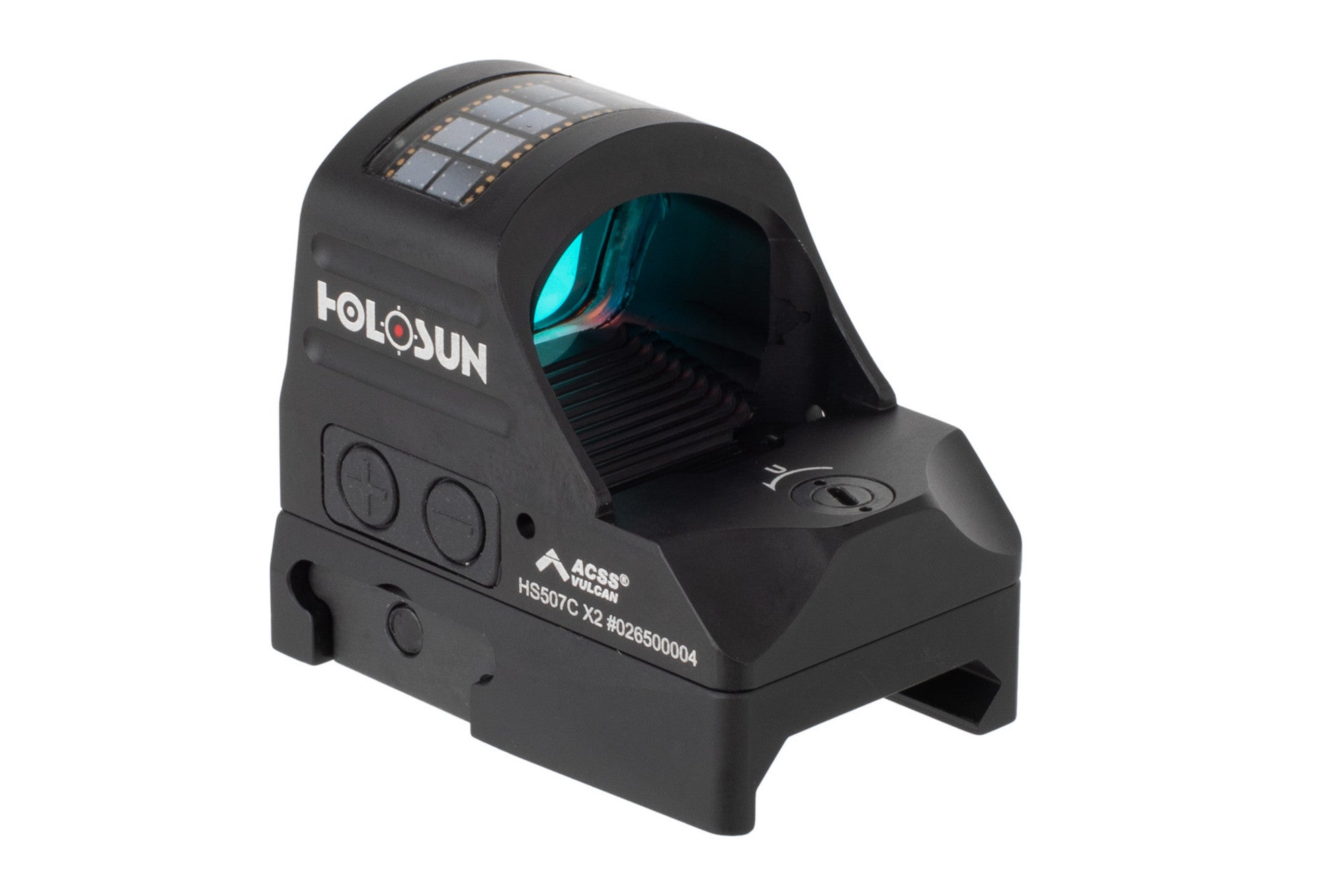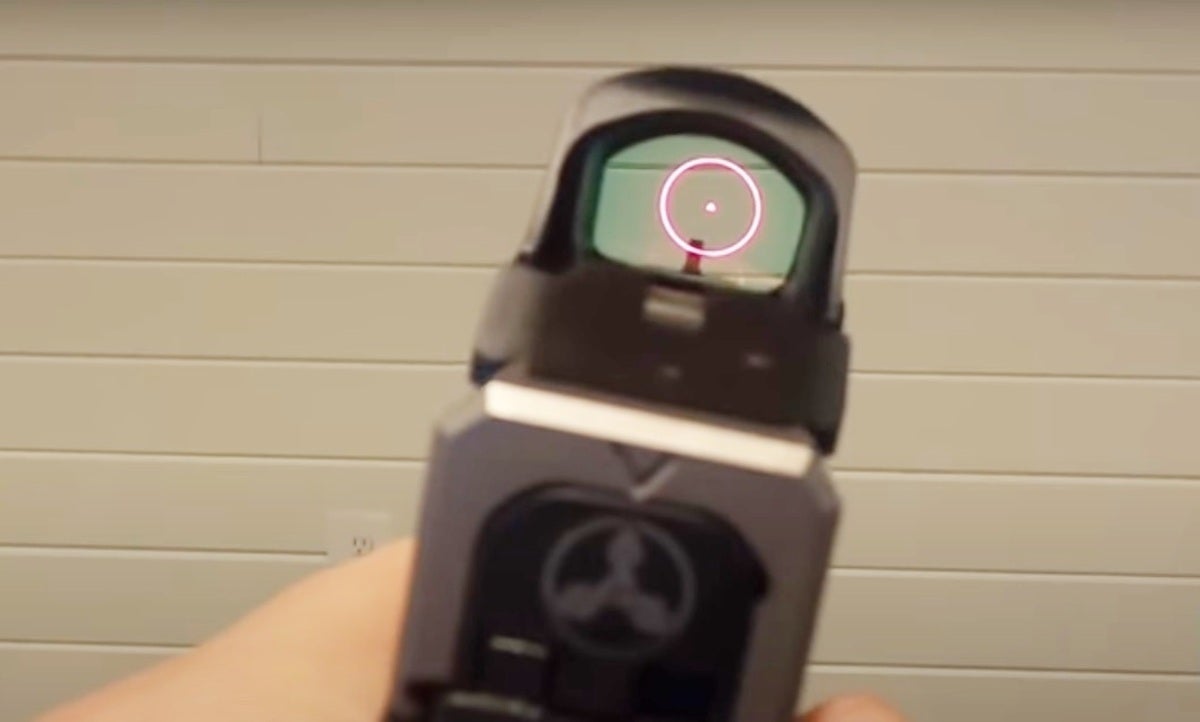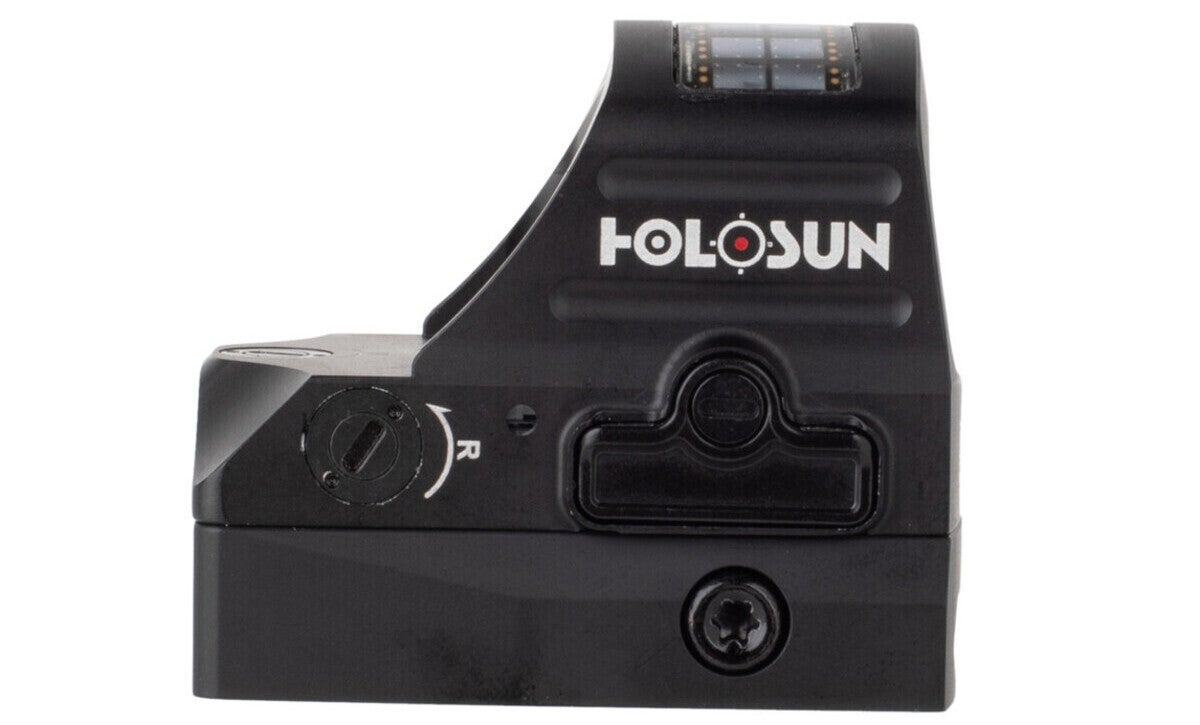Holosun/Primary Arms Make a Radical Reticle Red Dot
Eve Flanigan 01.26.21

Red dot sights, especially when mounted on handguns, are advantageous over iron sights for rapid sight acquisition. Rapid, that is, once the user has invested time in figuring out just the right angle of presentation to quickly align the dot with the target. But for a new operator of a particular system, or for awkward positions while shooting, learning to use a red dot takes adjustment – and time. Primary Arms Vulcan ACSS reticle, when used in combination with Holosun’s reliable red dot design, largely solves that shortcoming. Enter the new HS507C-X2, an optic that marries the Vulcan with a handgun-friendly package.

While the HS507C-X2 can be mounted on the rail of a long gun with a Pic rail attachment, it is its applicability to handguns that is a game-changer. The mounting system is compatible with slides or plates milled to match the Trijicon RMR pattern. The flagship trait of this new combo is the Vulcan ACSS reticle by Primary Arms, which is a tiny chevron centered in a thin, roomy circle.
There are definite advantages of this reticle, one of which is not available in any other system. They are:
Rapid Aiming Guidance: Unique to the Vulcan ACSS, the circle around the chevron is roomy enough to appear on the periphery when the user aims the optic in the general direction of a target. Seeing only a partial arc of the circle serves as an intuitive and visual guide as to how to move the gun to find an accurate point of aim. This eliminates moving the gun around, searching for the dot, as is common for a new user/optic combination or when the user is deploying the gun in a non-standard position or using a non-customary method, i.e., shooting from prone or using one hand only.


Superb Visibility: The point of the dainty chevron serves as a natural zero for most combat- or competitive-style shooting. Not only does the open-style chevron prevent the dot from overpowering small or distant targets (as can happen with larger dots or solid chevrons), it opens up the possibility of holdover calculations that aren’t possible with any system other than a traditional scope. Which leads us to the last breakthrough trait of this system…
Ballistic Drop Compensation (BDC): Primary Arms took much of the work out of the equation here by publishing a chart showing common calibers and hold-overs with distances. Of course, these are subject to change depending on bullet weight and barrel length, but the chart is a time- and ammo-saving start. If the user decides he or she would rather not use the circle, it can be turned off with the push of a button on the right side of the housing.

As if the reticle wasn’t enough to love, Holosun made the outside of this optic all about practicality. Its 7075 aluminum housing is tough. The inner construction is tough, too — at least one user claims his original HS507C continued to work even after the optic suffered a fall onto concrete which cracked the glass.
Then there’s the battery, which is easy to change using a slide-out tray, no re-mounting necessary. The HS507C-X2 features Holosun’s Shake-Awake motion-activated technology, good for both battery life and tactical readiness. If the 50,000 hour battery fails, Holsun’s namesake, solar power, serves as backup so long as sufficient light is available.
Currently, the HS507-X2 is on pre-order status at a price of $309.99. Deliveries are projected to begin in April 2021.